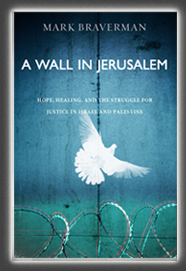
Essential Books
I call these books “essential” because they have been important to me in my attempt understand what I have seen and in my search for connection with others who have confronted the situation and have felt compelled to investigate, to search within, and to write.
Joel Kovel, Overcoming Zionism
“Joel Kovel’s uncompromising criticism of Zionism is rooted in a a very deep feeling of empathy and solidarity with his fellow Jews caught in the death-trap of the Zionist adventure.” (Michel Warschawski, AIC, Jerusalem). “This book is absolutely fundamental for those who reject the unfortunate confusion between Jews, Judaism, Zionism and the State of Israel.” (Samir Amin, Third World Forum). Read Kovel’s book, just out in 2007, and one of the most intelligent books to come out in recent years joining the groundswell of Jewish intellectuals calling for a post-Zionist solution to the Israel-Palestine question.
Gershom Gorenberg, The Accidental Empire
An essential and well-written book. An Israeli journalist and historian, Gorenberg recaps Zionist History as the preamble to conditions that set up the Occupation of the Palestinian territories post-1967. He then tells the whole tragic story of fanaticism, political cowardice, and failed opportunities. A unique and courageous window into Israeli society and politics. Read this and you will understand the Occupation.
Jacqueline Rose, The Question of Zion.
Rose’s brief set of 3 essays is perhaps the most searching, probing book available on the subject. Zionism, she claims, is not to be rejected or opposed, but understood, and she provides us with an analysis that is courageous, scholarly, and of inestimable value. If you are Jewish, it will open your eyes and pierce your heart. If you are not, it will give you an understanding of the Jewish psyche and experience that you must have in order to make sense out of today’s political situation.
Benjamin Beit-Halahmi, Original Sins
This is an Israeli sociologist’s view of the tragic, unintended consequences of Zionism. He provides a poignant and intelligent look into the Jewish psyche, particularly with regard to the Diaspora and how this has led to the current situation we face in the Middle East.
Ilan Pappe, The Ethnic Cleansing of Palestine
Pappe is an Israeli historian. He is among a group of Jewish revisionist historians called the “New Historians” who have uncovered the crimes and abuses of Zionist and then Israeli forces at the time of the founding of the State of Israel. This book will open your eyes, although it is often emotionally difficult to get through. His final, analytical chapters are brilliant, sobering. (Note: Pappe, marginalized by Israeli society and the academic establishment, has left Israel for an academic position in the UK.)
Michael Neumann, The Case Against Israel
Neumann is a moral philosopher, and this small book is highly intelligent and clear. As a moral philosopher, Neumann combines sober, dispassionate reasoning with passionate feeling about what’s right and what’s wrong.
Sara Roy, Failing Peace
A historian and economist who lived in Gaza and for years has combined reporting with a scholarly, scientific approach to understanding the systematic destruction (what she terms the “de-development”) of Palestinian economy and society. Roy is Jewish and the daughter of Holocaust survivors. Roy’s powerful evocation of the central meaning of the Holocaust in her personal history is a cornerstone of her human rights work and her calling Israel to account for its abuses and crimes. This is essential reading for an understanding and analysis of the current socio-political situation in realistic and above all compassionate terms.
Elias Khoury, Gate of the Sun
This is a novel, written by a Palestinian. It is a beautifully written book (in this case, translated beautifully) and one that is heart-stopping in its evocation of the Nakba – the catastrophe of 1948 for the Palestinian inhabitants of the Galilee. A Galilean refugee from the 1948 ethnic cleansing and veteran of the war to resist the occupation of his land lies in a coma in a hospital in a refugee camp in Beirut in 2005. Another Palestinian, who calls himself his son, himself a refugee and fugitve, who was caught up in the Lebanon Civil War, talks to him. Nothing happens? It is the whole story of Palestine. Don’t miss it.
Marc Ellis, Toward a Jewish Theology of Liberation
Marc Ellis is a Jewish scholar, historian and theologian. This is a towering, invaluable, searing discussion of Jewish history, theology and thought in the light of the current justice issues in Israel and Palestine. Ellis takes on what he terms our “Liturgy of Destruction” and the consequences of anti-Semitism and the Holocaust in his compassionate plea for mourning and healing. A strong, clear, and important voice.
Elias Chacour, Blood Brothers
Father Elias Chacour is a Catholic priest and the Archbishop of the Melkite Church in Israel. Born in a village in the Galilee, he and his family were expelled in 1948 as part of the ethnic cleansing of Palestine by Zionist forces. Father Chacour has stayed in Israel, devoting himself to peace through the education of Palestinian children and working for reconciliation between Palestinians and Jews. This is the memoir of an extraordinary man.
Naim Ateek, Justice Only Justice: A Palestinian Theology of Liberation
Like Father Chacour, Father Naim Ateek was born in a Galilean village and dispossessed as a child in 1948. An Anglican priest, Father Ateek has devoted himself to working for reconciliation and nonviolent struggle through following the example and teachings of Jesus Christ. This book is the recounting of his own story and an articulation Palestinian Liberation Theology. Deeply moving, and, for this Jewish reader seeking a connection his own Prophetic tradition, a crucial link to his own faith.

